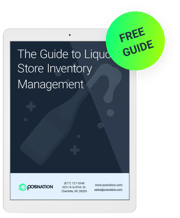Liquor Store POS Systems: Four Must-Have Features
Point of sale (POS) systems provide liquor stores with the same benefits they offer other retailers: faster checkouts, a centralized record of all transactions, along with improved inventory control and loss prevention capabilities. We've served hundreds if not thousands of liquor stores (including the merchant featured in a blog article liquor POS case study), and from our experience, we've seen how liquor retailers can also gain an edge on their competition when they opt for key POS functionalities designed for the specifics of their businesses.
There are four major “must-have” feature categories for liquor POS systems:
- Pricing for specials and sales
- Flexibility for both multi-pack and unit sales
- Advanced inventory tracking
- Age verification
Pricing: Sales and creative promotions can be critical business-builders for liquor retailers, so it should be a quick and easy process to configure a POS system for a range of special pricing options. These can include:
- Time-limited sales, e.g. for wines or spirits associated with certain holidays (such as kosher wines for Passover)
- Global sales, e.g. “10% off all California wines”
- Bulk pricing, as for a major customer or a catered event
Liquor POS systems should also be equipped to automatically calculate and handle deposit amounts. For retailers with multiple stores, the system should be easy to set up to reflect the correct deposit amounts for applicable sales in each state or province.
Flexibility: From six-packs of beer to cases of wine, liquor stores deal in a wide range of multi-pack items. Retailers will need to make sure their POS system can easily price and process sales by the bottle, by the six, 12, or 30 pack, or even by the keg. Flexibility also extends to “mix and match” capabilities for sales. For example, a retailer may offer a discount to customers purchasing any 12 bottles of wine, so the liquor POS will need to allow customers to easily select a variety of different wines and sizes (and to not allow restricted sizes, such as airplane bottles, to be counted toward achieving the discount).
Inventory Tracking: Shrinkage and outright theft are issues for all retailers, but they are particularly urgent for liquor retailers given the value and portability of their products. A liquor POS with barcode scanning integrated into the system allows for more accurate inventory overall and faster counts, both of which discourage theft. If the retailer carries a number of specialty items that don’t have barcodes, such as artisanal beers or wines, a liquor POS incorporating a barcode printer allows retailers to ensure products from all suppliers are always accurately accounted for.
Age Verification: Liquor POS systems that allow employees to check customers’ ages by swiping or scanning a driver’s license or other ID can protect retailers from violating state and federal regulations. Because both under-age drinking and smoking are serious concerns, authorities monitor liquor stores, often using undercover sting operations, and penalties can include citations, fines, or even loss of a liquor license.
These age verification features should be easy for retailers to manage, allowing them to correlate different age restrictions for the purchase of alcohol and tobacco products. For retailers operating multiple stores, it should be easy to adjust the system to reflect different laws in different localities.
With a POS system designed to meet the many specific requirements of liquor retailing, owners and managers can focus more on stocking the items that will appeal to their customers and less on the mundane mechanics of business operations.


